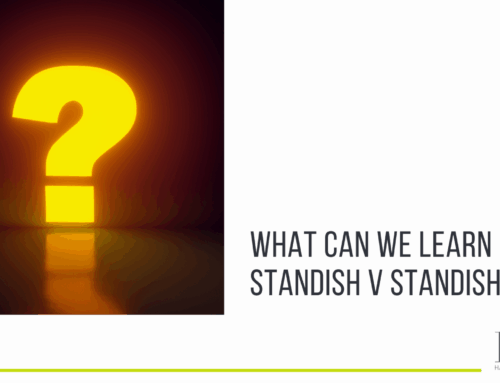Divorce can be complex, particularly if there are assets and finances involved. What will happen to the family home or any other properties you own with your spouse is a common source of worry. Before making any decisions, having independent expert legal advice is crucial.
Let’s look at some of the things you’ll need to consider when your divorce involves a property.
Does it matter how the property is owned?
When you purchase your property with your partner or spouse, you will have decided whether to own it in one of your names, as joint tenants, or, tenants in common. If you’re joint tenants, you have equal rights to the whole property. If you’re tenants in common, you each own separate property shares in your home, which can be in different proportions.
If the property is held as Joint Tenants, this means that if you were to die, your share of the family home would automatically pass to the other owner. Some people going through a divorce wish to change this. Many want to leave their share to another family member or their children instead.
During a divorce, assets that each spouse has built up during the time they have lived together go into the marital ‘pot’ for division. This includes property, even if it’s in one spouse’s sole name. The ultimate aim is to divide the pot in a way that’s fair to both parties and ensures that all needs are met. This isn’t usually 50:50. The final outcome will depend on many factors, which is why it’s beneficial to seek independent legal advice about your particular circumstances.
Should I move out?
Some couples have been living in stressful circumstances under the same roof for some time before finally making the decision to separate and they don’t want to live in that tense atmosphere for a second longer than they have to.
Moving out will not prevent you from claiming a share of the property in your divorce settlement. However, you should always think carefully before moving out of the family home and seek legal advice first as this could have significant repercussions.
If you move somewhere smaller whilst the details of the divorce are sorted out the court may then argue that you can manage with this level of accommodation, potentially making it difficult for you to negotiate a settlement that provides for a larger property.
There are also financial constraints to consider. Can you afford to move out for what could be many months whilst the financial details of your settlement are agreed? If you are paying rent in addition to mortgage payments on the marital home you must be certain that your income will sustain this level of expenditure for the duration of the divorce proceedings.
In most cases, an interim arrangement will need to be agreed in order to meet the costs of running the family home until the divorce settlement is finalised. This is where specialist legal expertise can be of real benefit, as the details on which these interim payments are based will be considered at a later stage when the final settlement is negotiated.
What options are realistic for the longer term?
As much as you might want to keep the property you’ve been living in, you’ll need to determine if this is a financially viable option. For example, can you afford to buy your spouse out of their determined share? And if you can, will you be able to manage the mortgage payments on your own?
If there needs to be a sale, is there enough equity in the property to enable you both to adequately rehouse? What would a fair share of the sale proceeds look like? Your solicitor can help you navigate all of these questions and get expert input from a mortgage advisor to put you in the best negotiating position.
Will inheritance be taken into account?
Inherited property may or may not be brought into it. Again, it all depends on your particular circumstances.
Factors such as the duration of your marriage, what’s happened to the inheritance and whether or not there’s enough in the marital pot to cover each party’s needs for housing and income will all be considered.
According to recent statistics, 49% of first-time buyers relied upon the aptly named ‘bank of mum and dad’ to purchase their properties. It’s essential to consider the implications of this during a divorce. Is there a Trust Deed giving a third party a stake in your property? Was the money a gift to both of you, or you alone?
Inheritance and divorce are very complex areas of the law, and ones you don’t want to navigate without expert legal advice.
Making decisions during a divorce can leave you feeling overwhelmed, particularly when there are assets to be divided. That’s why it’s so important to have an expert family lawyer on your side.
At Harrogate Family Law, your future is our priority. We’ll work with you every step of the way to ensure an outcome that’s fair to you. To put an expert legal team in your corner, get in touch with us today.






